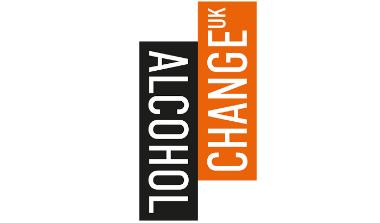Mental Health-Focused Goals For Your Dry January
Mental Health / Alcohol GuidanceStarting off a new year with the intention of changing your relationship with alcohol can feel overwhelming. With practical tips from our official online therapy partner, BetterHelp, and Alcohol Change UK’s free resources, you can BOSS the booze this Dry January challenge and beyond!
The Dry January challenge can be a welcome time to pursue healthy lifestyle changes. Whether you’re already practicing an alcohol-free lifestyle, curious about sobriety, or looking to moderate your drinking, there are lots of ways to commit to lasting lifestyle change and build a more mindful relationship with alcohol.
Whatever your story, you’re not alone. Implementing lifestyle changes on your own can be challenging, but setting goals which utilise strong support communities, better resources, and positive goal-attainment choices can make all the difference in whether you reach your goals.
Our official online therapy partner, BetterHelp has pulled together some top tips which may offer the guidance you deserve as you explore an alcohol-free lifestyle and potentially explore the “new you” who chooses to stay dry this January.
Improve your goal selection
Goal selection may be one of the most crucial parts of a journey to make lasting changes, making it a great starting point for planning. This step includes picking a suitable goal and ensuring you have a plan. Evidence suggests that broad goals are less likely to be attainable than more manageable goals, so developing smaller goals that pave a path to the broader "main" goal can be critical.
SMART, an acronym, refers to the following features of a well-selected goal:
- Specific: Specific goals are clearly defined, allowing individuals to understand when the goal has been met and what actions must be taken.
- Measurable: Effective goals can be quantified. They have discrete objectives that can be used to measure progress, like pounds lost, miles run, or the number of times negative self-talk is corrected.
- Achievable: Some people select lofty, aspirational goals to push themselves toward maximum achievement. However, evidence suggests that attaining a significant goal is more reachable if that goal is split into more manageable chunks.
- Relevant: Goals can be aligned with the "big picture" resolution, moving a person progressively closer to their primary goal.
- Time-Bound: Goals may become more effective when they have a deadline. Like the goal itself, make the deadline achievable and manageable.
Using the SMART approach, the person breaks down their broad resolution into a series of more manageable goals, examples of which might include:
“I will continue drinking less alcohol until I consume fewer than three drinks per week, to be accomplished within three months.”
Utilising free tools like the Try Dry app will allow you to enter goals, track progress, and celebrate milestones to keep you motivated!
Consider your motivations and create a plan
Conducting a thorough self-analysis around why you want to shift your relationship with alcohol may provide personalised motivation to help you commit to your goal. Survey your motivations to see if any goal resonates more than others.
The Dry January Challenge is a great time to reflect on your relationship with alcohol and any changes you want to commit to long term. If there are areas you feel you might struggle with, it may be helpful to write out a plan. It might include information such as:
- A list of healthy coping skills to turn to when you encounter challenges
- A list of reasons why you want to remain alcohol-free as a reminder to yourself
- A script for challenging social situations
- A friend or loved one you can call to talk to if you feel tempted to drink
Set and enforce boundaries
It can sometimes be hard to say no when others pressure you to drink, especially close family members and friends. Before attending a celebration or spending time with friends or family, it may be helpful to speak to a trusted friend, so they know your boundaries around your own alcohol-free lifestyle. For example, you might ask them to refrain from offering you a drink, talking about alcohol, or drinking significantly near you. If you plan to attend parties where alcohol or other substances may be present; you might choose to bring your own non-alcoholic drinks or ask if an alcohol-free option will be available.
If those around you pressure you to drink or repeatedly disrespect your boundaries, it could be a sign to have a more serious conversation about what these boundaries mean to you and your safety, or to distance yourself from social situations with them
Speak with a professional when you feel you need extra support
Some people find that regularly attending in-person therapy sessions doesn’t fit with their schedule, lifestyle, or preferences. In cases like these, online therapy can represent a more convenient option. With a platform like BetterHelp, you can sign up by filling out a brief questionnaire and then get matched with an experienced, licensed therapist. You can then meet with them via phone, video call, and/or in-app messaging from the comfort of home according to your schedule.
Recent studies indicate the potential effectiveness of internet-based therapy, including in the treatment of alcohol dependency. Research from the past several years suggests that online therapy in general can be as effective as in-person therapy, and that it represents a promising treatment option for those experiencing symptoms of alcohol dependency as well. Different types of therapy, such as cognitive behavioural therapy, are used to treat alcohol dependency and other substance use disorders.
Choosing an alcohol-free lifestyle or sober curiosity can come with additional challenges. Getting clear about your goal and motivations, creating a sobriety plan, seeking out supportive community and connecting with a therapist are some strategies that may help you BOSS your commitments to an alcohol-free or sober-curious lifestyle any time of year.








































































































































